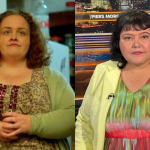
Contributor: Chris Woods
The Great Barrier Reef is in trouble, folks, no matter what One Nation tourists might tell you.
In some of the worst news yet for our legit wonder of the natural world, Queensland researchers have confirmed two-thirds of coral has died along a 700-kilometre stretch north of Port Douglas.
The record die-off comes after the world’s third and largest mass bleaching event earlier in the year, a global event where spikes in ocean temperatures kill off the algae-like zooxanthellae and, in turn, starve coral of nutrients and colour.
Coral can survive bleaching and regain their colour in time, but, if this hasn’t happened after 6-12 months, bleached coral will slowly die.
“Worst ever” coral bleaching hit the Great Barrier Reef in 2016 https://t.co/sIeecjmNgg pic.twitter.com/49HbtTfaaR
— Oliver Milman (@olliemilman) November 28, 2016
James Cook University professor and the world’s most highly-cited coral researcher Terry Hughes says this is why the team had to wait six months after the start of severe bleaching to resurvey the reef.
Describing the far-north section as severely damaged, Hughes estimated it could take between 10 to 15 years for new coral to emerge:
“The bleaching in the northern section was so severe that corals that don’t normally bleach, have.”“And so when you lose a 50-year-old coral, you can’t [fix] it in just a handful of years.”
Luckily for tourism, the team also found that coral south of Port Douglas, including major destination areas around Cairns and the Whitsundays, have shown remarkable improvement in coral health and recovery.
Another JCU researcher, Andrew Baird, said that although the final tests showed recovery in these areas, the team cannot be complacent and has to look out for the next great bleaching event:
“Those reefs around Townsville and further south didn’t bleach this year, hopefully they’re not going to bleach next year.”“But who knows when the next major bleaching event will happen?”
As damaged as the reef is and, sadly, while the the ocean’s going to get warmer no matter what, the news at least shows there’s enough of if left to fight for.
This presumably means the challenge for researchers will be to continue highlighting the effects of climate change as a means of advocating for reduced emissions.
And, because charity starts at home, this is stuff that Queensland’s Labor government really needs to listen to. They’re inexplicably going ahead with plans for the reef-adjacent, high-polluting and economically-unviable Adani Carmichael coal mine, so yeah, the JCU team sure have their work cut out for themselves.
Source: ABC.
Photo: Getty / Auscape.



